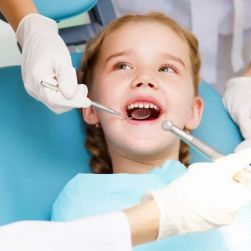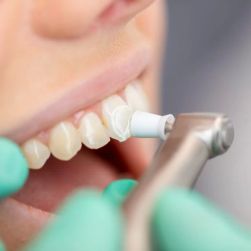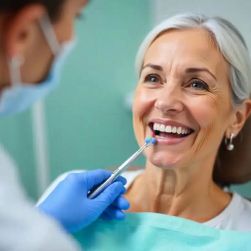Oral Health in the Elderly: Importance and Best Practices
As we age, maintaining oral health becomes crucial to ensure overall well-being. Elderly individuals are often at a higher risk for dental problems due to a combination of factors such as medical conditions, medications, and decreased dexterity. In the United States, oral health issues among seniors are prevalent, affecting their quality of life. It's vital to address these challenges proactively to ensure the elderly population can enjoy a healthy and comfortable lifestyle.
Importance of Oral Health in the Elderly
Oral health significantly affects the quality of life in elderly individuals. Research has shown a direct link between oral health and systemic conditions such as heart disease, diabetes, and respiratory illnesses. For seniors, maintaining good oral hygiene is not just a matter of dental health but a critical factor in managing overall health conditions. Proper oral care can prevent common problems such as tooth decay, gum disease, and tooth loss, thus improving nutrition and emotional well-being.
Common Oral Health Challenges Faced by Seniors
The elderly population often encounters specific oral health challenges, such as dry mouth, gum disease, and root decay. Many seniors experience xerostomia, or dry mouth, due to medications or chronic conditions, which can increase the risk of cavities and infections. Additionally, periodontal disease is prevalent among seniors, with factors like poor oral hygiene and smoking exacerbating the issue. Addressing these challenges requires tailored oral care strategies and regular dental visits to detect and manage problems early.
Personalized Dental Care for Seniors
Customized dental care is essential in managing oral health for seniors. This includes using specially designed toothbrushes with larger handles for better grip or electric toothbrushes that can help improve brushing efficiency. Regular dental check-ups are crucial, as they allow for early detection of potential issues like oral cancer or infections. Furthermore, seniors should maintain a balanced diet rich in vitamins and minerals, which are crucial for healthy teeth and gums.
The Role of Caregivers and Family
Caregivers and family members play a pivotal role in maintaining oral health for elderly individuals. They can assist by ensuring consistent dental hygiene practices, monitoring dietary habits, and accompanying seniors to regular dental check-ups. Education on oral health care techniques can empower caregivers to provide better support, ultimately contributing to the senior's overall well-being. Family involvement is key for providing emotional support, which significantly impacts an elder's willingness to adhere to oral health routines.
Healthcare Access and Policy Implications
Access to dental care remains a significant barrier for many elderly individuals, especially those residing in rural or underserved areas. Public policies emphasizing the integration of dental care into standard healthcare and offering subsidies for senior dental services can greatly enhance accessibility. Advancing tele-dentistry initiatives can also provide remote consultations and follow-ups, making dental care more accessible for seniors with mobility issues.
Conclusion: Promoting Oral Health in Seniors for a Better Quality of Life
Ensuring good oral health in the elderly is pivotal for enhancing their quality of life and general health. By understanding specific challenges and implementing personalized care strategies, seniors can significantly improve their oral health. Encouraging regular dental visits, supporting caregivers with proper education, and advocating for better healthcare policies will play an essential role in this endeavor. It's a collective responsibility to ensure our elders receive the care they need to maintain their dignity and well-being. For more information on dental care for all ages, visit Dentistry Toothtruth.






